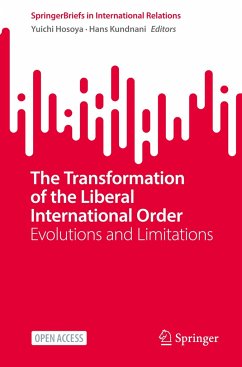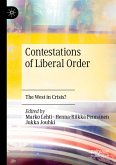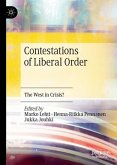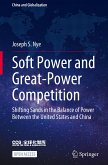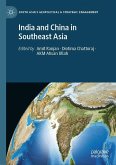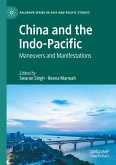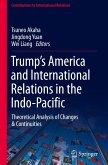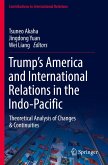This open access book aims to emphasize the potential for Japan, Europe and Indo-Pacific countries including the US to respond to shared domestic and international challenges on finding joint ways to uphold and develop the liberal international order (LIO) in the Asian Pacific region and the world. It explores how these countries and the region (the EU) can work together to promote solidarity and cooperation to advance democratic standards and rules-based norms globally.
The US understands the LIO in a political sense and centers its focus on democracy, aiming to build a coalition of democracies opposed to China and Russia which represent a kind of authoritarian axis. The US aims both to defend the LIO and respond to the China challenge and to build a coalition of countries that will do both. In contrast European countries aim at defending the "rules-based order"-a term preferred because they fear that the concept of the LIO might alienate or antagonize non-democratic countries. They face a dilemma between working with China to reform the LIO or, in seeking to defend it from China, excluding China. Germany and France differ regarding whether to play a passive or active role in the Indo-Pacific, the former choosing to preserve peace and stability for continued exports, and, until recently, doing little to contribute to security. Its views echo those of the ASEAN countries, which are unable or unwilling to take an active role in protecting the LIO. On the contrary France, along with the UK, actively carries out presence operations in the Indo-Pacific. Rather than upholding US dominance, France supports a multipolar order that will also reduce China's influence in the region, with France acting as a balancing power and offering an alternative to the choice between China and the United States. Japan and India show interest in European views with the former leaning more toward its allies, the US and AUKUS, and the latter seeing Europe less as an alternativeto the status quo and more as a complement of QUAD. This book concludes that the US needs to build coalitions rather than forcing allies and neighbors to choose sides, while Japan, Asian countries, and Europeans should more actively reform the LIO.
The US understands the LIO in a political sense and centers its focus on democracy, aiming to build a coalition of democracies opposed to China and Russia which represent a kind of authoritarian axis. The US aims both to defend the LIO and respond to the China challenge and to build a coalition of countries that will do both. In contrast European countries aim at defending the "rules-based order"-a term preferred because they fear that the concept of the LIO might alienate or antagonize non-democratic countries. They face a dilemma between working with China to reform the LIO or, in seeking to defend it from China, excluding China. Germany and France differ regarding whether to play a passive or active role in the Indo-Pacific, the former choosing to preserve peace and stability for continued exports, and, until recently, doing little to contribute to security. Its views echo those of the ASEAN countries, which are unable or unwilling to take an active role in protecting the LIO. On the contrary France, along with the UK, actively carries out presence operations in the Indo-Pacific. Rather than upholding US dominance, France supports a multipolar order that will also reduce China's influence in the region, with France acting as a balancing power and offering an alternative to the choice between China and the United States. Japan and India show interest in European views with the former leaning more toward its allies, the US and AUKUS, and the latter seeing Europe less as an alternativeto the status quo and more as a complement of QUAD. This book concludes that the US needs to build coalitions rather than forcing allies and neighbors to choose sides, while Japan, Asian countries, and Europeans should more actively reform the LIO.
